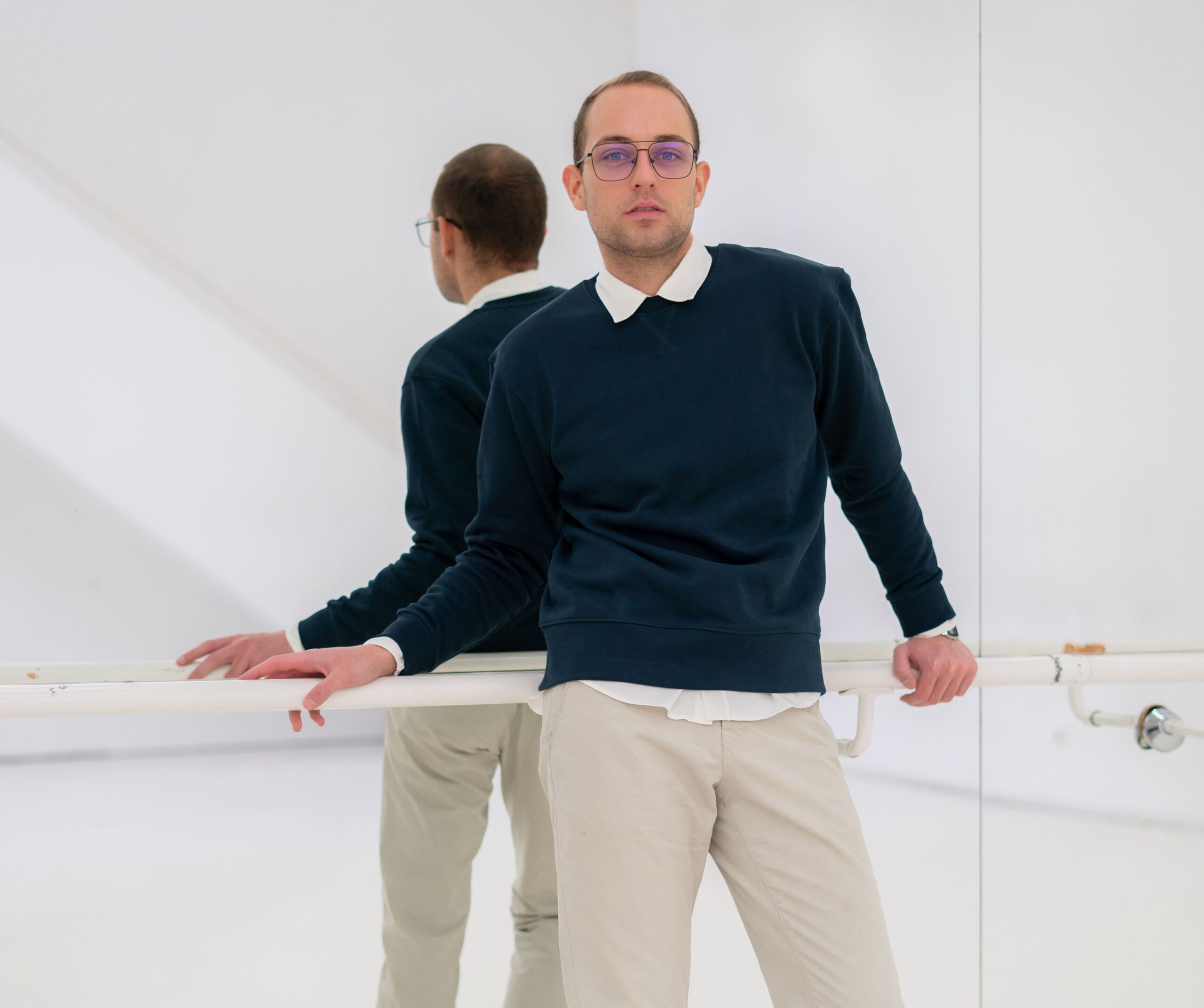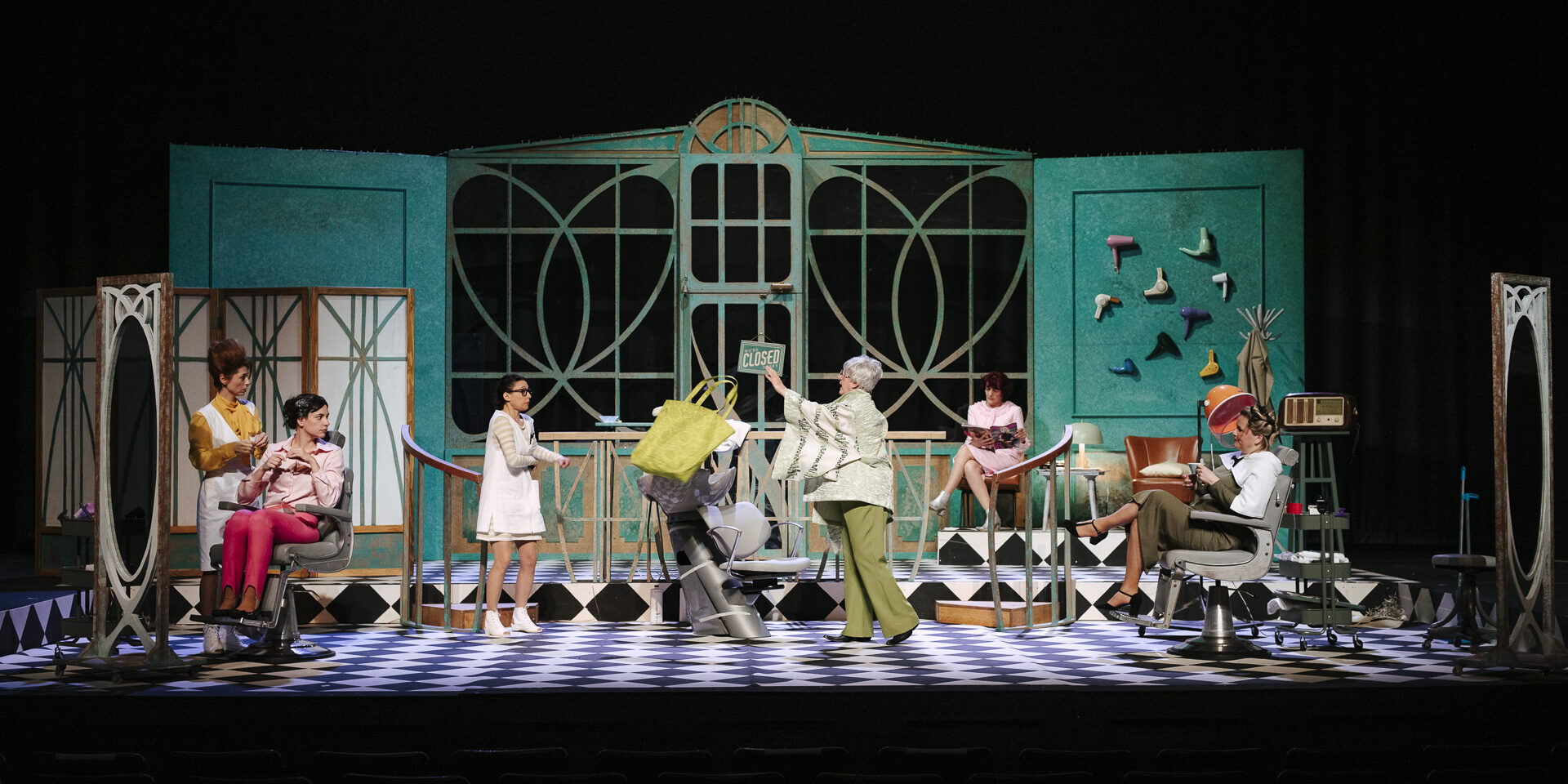Working for free and battling a centralised system: Nora Čulić Matošić explores what it’s like to be an emerging young theatre artist in Croatia.
Recent graduates Paola Lugarić, Nika Ivančić and Marin Leo Janković are all looking to make a career in theatre. Like me, they were all part of the Drama and Dance Studio of Istrian National Theatre in Pula, where we had a chance to participate in theatre productions for children and adolescents and were introduced first hand to professional theatre work. Speaking to them, it’s possible to get a pretty realistic picture of what it’s like to be an emerging young theatre artist in Croatia: what are the conditions, prospects, practices and the challenges they face after leaving their comfortable student life and starting their own professional careers.
Even though they have studied in different cities (Zagreb and Rijeka) and have different professions – scenographer, actor, producer – they all face similar problems with working conditions and prospects on the Croatian theatre scene. There are two main issues. A lack of knowledge of administrative and business skills, and the centralization of the already small Croatian theatre market and performing arts scene in the capital city, Zagreb.
The consequences of the pandemic and the Zagreb earthquake which took place in March 2020 are also still felt today in the Croatian theatre scene, be it in the form of structural damage or financial losses. A 2016 study conducted by Kultura Nova Foundation highlights this issue of centralization not just in geographical terms, but also in terms of applying for financial support from the ministry. According to the study, the average number of employees per cultural organization is three, most of who are self-employed. The paradox is that these organizations are heavily understaffed and rely on volunteer work but aren’t able to hire more people due to lack of funds and financial support. Not to mention that most of the employees have to do multiple jobs, especially in administration and management before starting any cultural or artistic work for which they are underpaid and self-exploited. A second 2021 study about the aftermath of the pandemic and earthquake confirms the vulnerable state of workers in the cultural sector.
‘The work dynamic is very demanding and stressful. You need to have a lot of skills to be able to manage a project independently, from artistic, theoretical, practical and technical,’ says Lugarić, a freelance artist from Pula, Croatia. In 2020 she graduated from the Academy of Applied Arts in Rijeka where she currently lives and works. She’s been professionally active in the theatre industry for five years now. Her first independent scenography was for the opera “Dido and Aeneas” directed by the Finnish director Mirva Koivukangas and produced by the Croatian National Theatre Rijeka.
‘Auditions are very rare so it’s hard to get your foot in the door without a bit of help. And unfortunately luck has a lot to do with it. Being in the right place at the right time as they say’ says Ivančić, a young freelance actress from Pula. She holds a BA of Acting and Media (2016) and MA in Acting (2019) from University of Rijeka in the class of professor emeritus Rade Šerbedžija. Her professional work in theatre includes works in Croatia, Slovenia, Serbia and Hungary and she was recently awarded the Sabrija Biser Award for Best Young Actress Under the Age of 28 at the 28th Days of Satire Festival Zagreb.
Janković has taken a different career path. The producer, also from Pula, graduated in 2021 from the Academy of Dramatic Arts in Zagreb and holds an MA in Production of Audiovisual and Multimedia Projects. In 2020 he found his own creative production company SABMARINE with his university colleague and friend Sabrina Herak Smoković.
All three admit that, as artists, they find bureaucracy complicated, but necessary for navigating in professional waters. This is also why young artists have trouble breaking through and making their way in the industry, alongside the issues of nepotism and the need to rely heavily on connections.
According to Lugarić: ‘It would be good to have an introduction as part of courses at university in entrepreneurship, finance, business English and other things that you need to know in order to run a successful business. How to negotiate for a fee, for example. It is necessary to adjust the courses to teach students financial literacy, as well as how to present themselves and push through in our small market. These are all the skills that we need in this business and no one else will do it for us. A year ago, thanks to the projects I have now and [through working] as an assistant, I manage to earn enough to survive and be financially independent.’

Nika Ivančić
Ivančić feels the same about the bureaucratic aspect of the job but also adds. ‘I believe the main problem lies in being unprepared for the boring but necessary bureaucratic aspect of the job, and also with the fact that Academies automatically assume that you will be working in an ensemble after receiving your diploma. But that isn’t the case for most actors in Croatia. Academies should reflect that change in the system and teach their students how to survive and create successfully as freelance actors.’
The teaching system in Croatia is unsustainable if we simply compare the number of acting students all four Croatian Academies of Dramatic Art (Zagreb, Split, Osijek, Rijeka) accept each year. Let’s say that every Academy enrols about 10 acting students each year. By the end of their BA programme, which lasts three or four years, there are 40 young actors on the market in search of their first professional job. Considering how small the Croatian market is, there is plainly not enough opportunities or budget for every young actor or theatre artist in the country to find work. And with the negligence of the independent scene, how are the artists expected to survive solely from their artistic work?
Janković’s experience, as a production graduate, is different: ‘The study of production is imbued with Excel tables, project management, part of the tax system that is related to project business, as well as human resource management and other skills that are necessary in the business world. Nevertheless, the knowledge acquired at the Academy is closely related to art, theatre and film business, which, due to its specificity, can hardly be connected to the “classic” entrepreneurship sector that most of society is used to.’
He also points out that with young producers, because of their age, society perceives them as insufficiently mature or less reliable collaborators, and in addition, they deal with an art that, unfortunately, in Croatia ‘is on its knees and silently waiting for the guillotine strike’. This is where, in his words, the Academy serves as a platform for networking which is incentive for the growth and development of each individual, where it is up to the students themselves to take advantage of the invaluable opportunity provided to them. ‘Innovative and creative ideas find their way in a sluggish system, and everything sometimes turns into a system full of repeated repetitions,’ says Janković.
The independent scene in Zagreb is very small and lacks support and financial resources but, in comparison with the repertoire of national theatre houses which lack diversity, there are a lot of new and interesting projects being made by young artists in spite of very small financial support from the ministry or city community. ‘I am resisting to move to Zagreb for now, but it seems to me that it is looking increasingly likely,’ says Lugarić
‘The audience has to be gradually educated and eased into a different kind of art form for it to become more popular amongst the general public. But for that to become reality we need more financial support from the ministry,’ adds Ivančić
Both Ivančić and Lugarić stress that only through practice can one get a real impression of theatre work in the country, be it acting or scenography. In Ivančić’s words: ‘Unfortunately, I don’t think that any Academy of Arts in Croatia prepares you well enough for what ensues after you graduate.’ Although, she adds that there has been a change on the scene in terms of new faces from other Academies of Arts in Croatia, not just from Zagreb which is refreshing and necessary.
Despite my naturally cynical nature, when it comes to the current state of the Croatian theatre scene and its prospects, I feel a bit optimistic. I think it is safe to say that the community looks forward to every little change, be it new emerging artists or exciting projects which promise to bring diversity and freshness to the dull, almost lethargic theatre scene.
And it is possible to make a reasonably decent living as an actor, scenographer or producer in Croatia – but at the cost of working voluntary or for minimal compensation at the start of one’s career when you are still considered rookies. The question, however, is: when does the trial period end? How long are you expected to basically work for free? There’s no doubt that sacrifice and always doing your best pays off. But it has become normal to expect recent art graduates to do their first professional work for a small fee or even for free in order to gain trust and prove their worth to the employer.
For Lugarić, everything took off after she applied for a production of the opera La Boheme as a scenography assistant to director Fabrizio Melano, with whom she had a positive working relationship. There has also been some progress when it comes to open discussions of underpaid artistic work with SPID (Croatian Screenwriters and Playwrights Guild), UPUH and PULS (Croatian Dancers Association and Association of Professional Dance Artists) which have both respectively recently published handbooks with professional price lists and guidelines for dancers and writers to refer to when negotiating their payment. Besides the price list, handbooks include artists labour and copyright laws too, which is a great way for students of dramatic arts to be introduced to professional waters.
 The current problem however, according to this Kulturpunkt interview with playwright Marin Lisjak is the ‘unrealistic’ payment expectations as claimed from ‘the other side of the channel’, when in fact the listed prices take in account the atypical nature of artistic work which differs a lot from a common office 9-5 job. It’s a shame that theatre students don’t experience the rookie trial period earlier, during their studies perhaps so that they are better prepared for the reality of theatre scene which isn’t glamorous as they perhaps expected.
The current problem however, according to this Kulturpunkt interview with playwright Marin Lisjak is the ‘unrealistic’ payment expectations as claimed from ‘the other side of the channel’, when in fact the listed prices take in account the atypical nature of artistic work which differs a lot from a common office 9-5 job. It’s a shame that theatre students don’t experience the rookie trial period earlier, during their studies perhaps so that they are better prepared for the reality of theatre scene which isn’t glamorous as they perhaps expected.
It is considered a privilege to dedicate your time solely to an artistic career without having a need for a side job(s). It seems like there is a distinct disruption between the reality and pleasant experience at the Academies which further shows how those educational institutions don’t prepare their students well for what comes after graduation. The Academies make a good platform for students to connect with colleagues from other departments but once they finish their education, they have to manage in their own way with the connections they’ve made during their studies in order to find work. Success is possible for young theatre artists but often at the cost of sacrificing their work and time in order to prove their personal worth as artists. And there is nothing noble about treating fellow artist-colleagues as less-worthy due to their young age or not taking them seriously because they are just beginners and still need to impress their professional ‘peers’ in order to be considered worthy of attention.
Thankfully, there are exceptions — as seen from Lugarić’s experience – but still a respectful professional relationship like the one she experienced should be a rule, not an exception. ‘In times of crisis, the greatest and most successful fighters are born,’ says Janković, ‘and in Croatia, unfortunately, there is a constant crisis, but that fortunately gives rise to incredible individuals.’
Further reading: Croatian playwright Ivana Vuković: “I write about the things to which I don’t have the answers”
Further reading: What a way to make a living; feminist dramaturgy in the Western Balkans
Nora Čulić Matošić (1998) is a student of Comparative Literature (MA) at the Faculty of Humanities and Social Sciences in Zagreb. She has written theatre criticism for the Croatian radio programme Theatralia and web portal Kulturpunkt.hr. Besides theatre, her interests are other forms of performing arts (particularly dance performances) and film.








